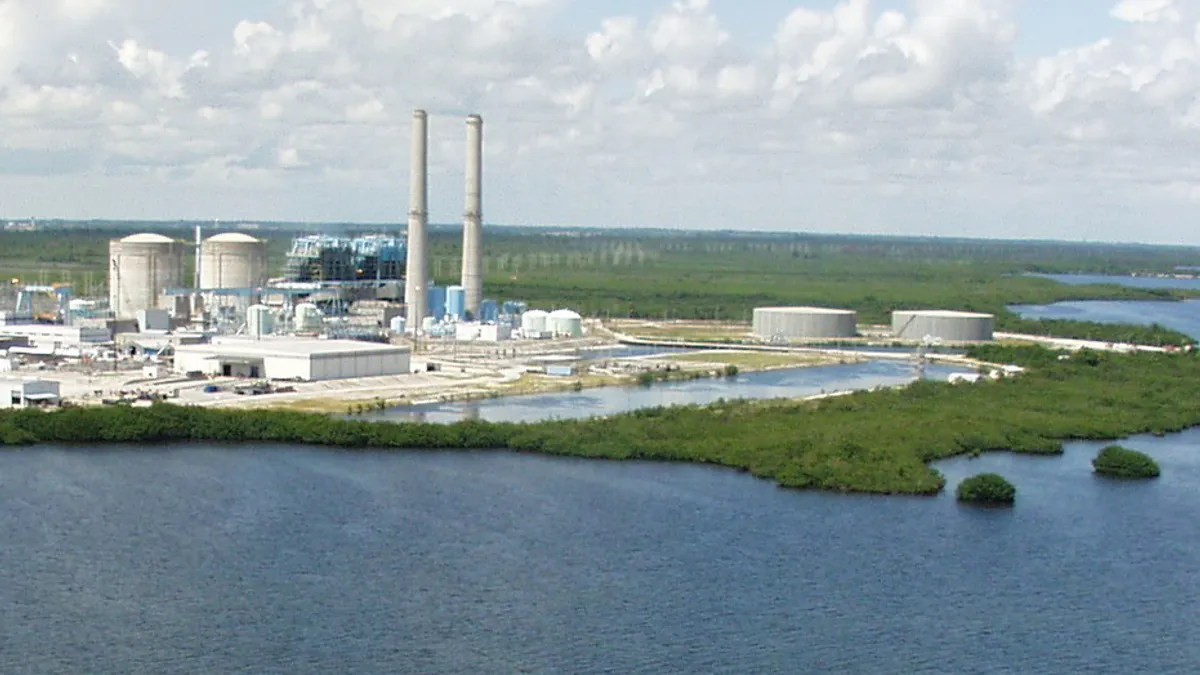Dive Brief:
- The Miami Herald reports that ahead of its plan to file a $1.33 billion rate case in August, Florida Power & Light told regulators it was “willing to defer consideration” of $22 million in charges related to the development of two new nuclear reactors at the existing Turkey Point plant near Miami.
- Development of those reactors is on hold following a court's decision that more environmental mitigation would be required.
- While deferring nuclear charges could save consumers 34 cents a month, the Herald notes cleanup of a salt plume at the facility is expected to cost them up to 50 cents a month.
Dive Insight:
Turkey Point continues to be a thorn in the side of FPL customers, but the utility's planned rate increase would dwarf the cost impact of recent nuclear plant issues, the Herald points out.
FPL is expected to file a rate a rate case in August that could boost a customer's monthly bill by 27%, raising fees on not just its base rates but also accounts in arrears, connection fees and late charges. If the utility's full rate increase were approved, the average customer's bill would rise by $14.67 a month, to $71.67, the paper reported.
In comparison, the costs at Turkey Point appear small. But the utility said it will forego payment on development of two new reactors until next year as it mulls what to do at the site. In April, the 3rd District Court of Appeal in Miami reversed a 2014 decision by Florida Gov. Rick Scott (R) to approve two new reactors at the plant. The court determined the plan could have serious environmental implications.
The facility is already operating two reactors constructed in the early 1970s, though it has not been smooth sailing of late. The state has directed the utility to improve water quality around the plant over the next 10 years, eliminating a salt plume of water which has been discharging into Biscayne Bay. The plan calls for FPL to install a recovery system to capture hypersalinated groundwater and store it underground, separate from drinking water sources.
FPL began charging customers for the development of new reactors in 2008, totaling more than $280 million.














